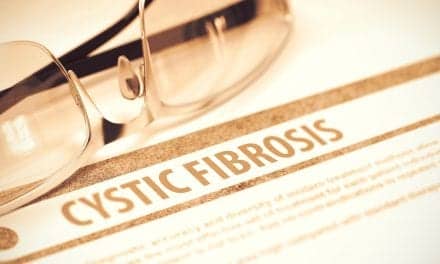The Cystic Fibrosis (CF) Foundation announced $1.6 million in awards for eight research grants focused on early detection and diagnosis of chronic lung allograft dysfunction (CLAD).
CLAD is the most common complication that leads to death in lung transplant recipients, and it is also one of the most difficult to address. That’s because detecting CLAD early is critical and often a considerable challenge, according to a press release issued by the CF Foundation.
Lung transplant is a vital treatment option for many people with advanced CF lung disease (ACFLD). However, complications can arise after transplantation, with nearly 50% of all lung transplant recipients diagnosed with CLAD in the first five years after their transplant.
To further the understanding of CLAD, the Foundation issued awards that study what chemicals or substances in the body could indicate a CLAD diagnosis and whether they could help physicians diagnose CLAD sooner. The eight awards will be used to investigate different types of potential biomarkers and approaches to diagnosing CLAD.
The top-ranked application, submitted by scientists at the University of Toronto and Columbia University, was presented the Mitch Greenberg Memorial Award in Lung Transplantation. The project will examine whether there is a connection between rejection and digestive reflux by testing bile acids found in the lungs of transplant recipients.
“We’re excited to fund these promising projects to help us better understand CLAD. The more we learn about what causes CLAD and how to detect it, the better equipped we will be to improve transplant outcomes for people with CF,” said Albert Faro, MD, vice president of clinical affairs. “While our most recent patient registry report told us that fewer people with CF than average have had lung transplants in the past year, the Foundation is unwavering in its commitment to support people with CF, wherever they are on their transplant journey.”
Updates in Lung Transplantation
These awards build on the CF Foundation’s commitment to improve transplant outcomes through the Lung Transplant Initiative, a multi-year effort to enhance lung transplant clinical care delivery, increase understanding of post-transplant complications, help advance new therapies for lung transplantation through clinical trials, optimize organ allocation for people with CF, and improve transplant-related support for the CF community. As of 2021, more than $40 million has been allocated toward the initiative.
Promising data on lung transplantation were released as part of the 2020 CF Patient Registry Annual Data Report. After a recent high of 244 transplants were performed in 2019, just 91 CF lung transplants were performed in 2020. While the data are promising and suggest fewer people have needed transplantation, the Foundation is continuing to invest in research to improve transplant outcomes for people with CF through its initiative.
The CF Foundation’s recent announcement is the latest in several pieces of news coming out of the initiative.
Since the beginning of 2021, the CF Foundation has:
- Launched a lung transplant-specific biorepository and patient registry, in coordination with Cleveland Clinic, to provide critical clinical data and samples to support future research investigating complications of lung transplant, including CLAD. Fourteen of the 15 planned CF Lung Transplant Consortium (CFLTC) sites have launched since mid-2021 and more than 265 individuals are enrolled to-date.
- Invested $3.5 million in Pulmocide to study its potential antifungal for people with CF who have had a lung transplant to prevent an invasive Aspergillus infection.
- Developed clinical care consensus statements for the care of CF lung transplant recipients to standardize post-transplant care.
- Developed consensus recommendations for models of best practices for palliative care in CF.
- Convened the Lung Transplant Surgical Working Group to engage CFLTC surgeons to determine surgical aspects of lung transplant care and outcomes to study
- Developed a Clinical Care Checklist to help care teams identify individuals with ACFLD based on the ACFLD Care Guidelines
- Continued engaging with the community and partnering with individuals with CF and their families through:
- Convening of ACFLD Working Group to regularly inform this collective work with lived experiences and shared perspectives
- Adding two additional patient representatives to the CFLTC Steering Committee, for a total of three, to provide more diverse patient experiences
- Broadening the virtual event NextBreath (formerly called CF MiniCon: Transplant), to address the need for support and connection for people with CF and their caregivers living with advanced disease or navigating the transplant process.
More information on lung transplantation in CF, including how to talk about transplantation, the referral and evaluation processes, and surgery and recovery can be found on cff.org.










